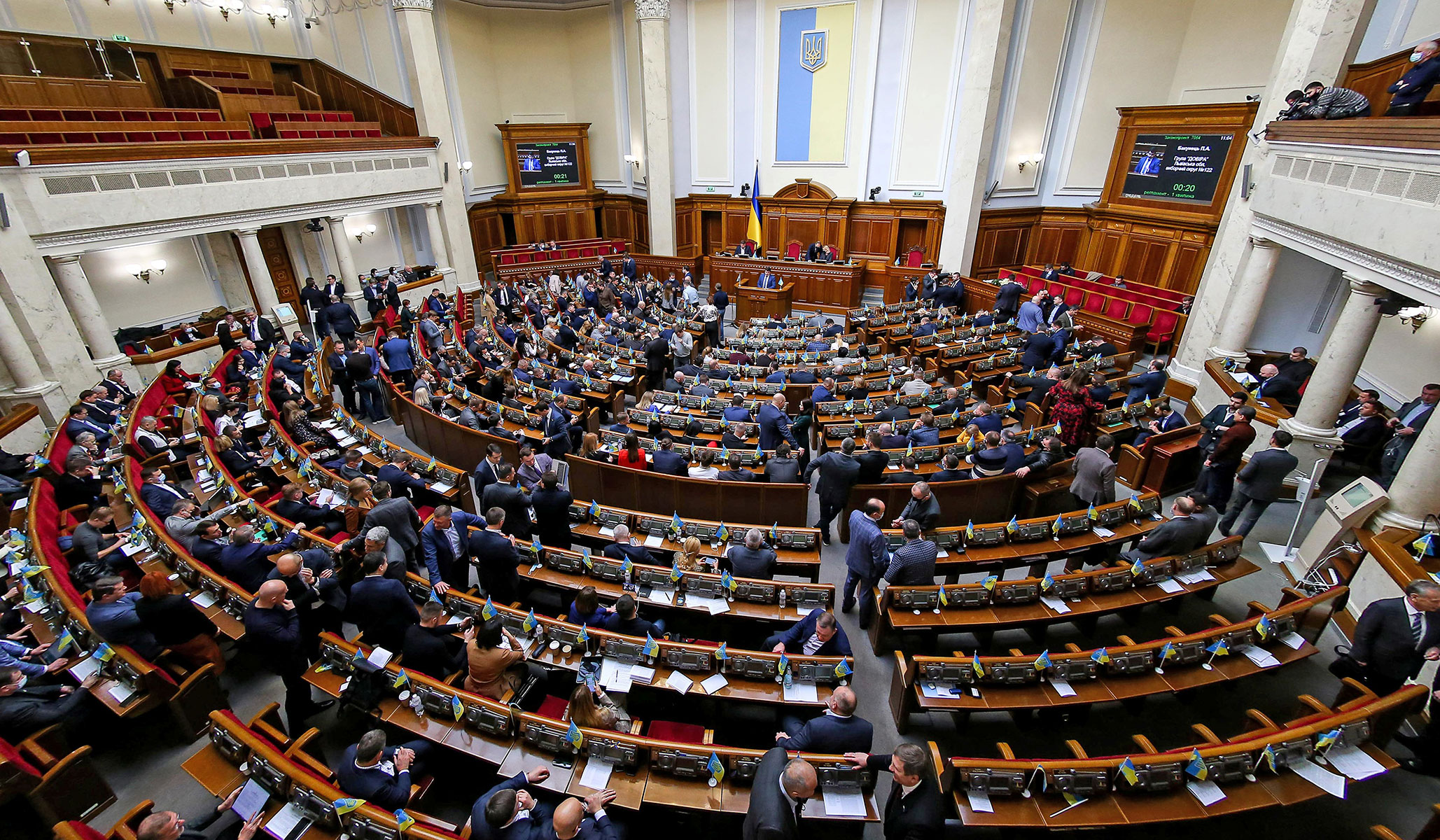


NRPLUS MEMBER ARTICLE C onservative opponents of U.S. support for Ukraine often return to a single claim: The Eastern European country is too corrupt. It’s true that Ukraine is plagued by corruption, cronyism, and oligarchy, much of it imported from Russia, but it’s false to say the country is a lost cause. The war will likely spark reform, much as previous crises prompted successful anti-corruption efforts.
Rather than abandon Ukraine, the U.S. and Europe should tie further support to additional anti-corruption progress, helping Ukraine emerge a stronger, more honest, open, and Western country.
Despite being a young state with roughly 20 years of effective institutional memory, Ukraine has already shown a commitment to tackling corruption. After Russia’s illegal annexation of Crimea and parts of the Donbas in 2014, Ukraine implemented wholesale banking-sector reforms, the specific reform of the National Bank of Ukraine, and large-scale decentralization of government power. Ukraine simultaneously created an anti-corruption office, which now works with international partners to fight financial crime. These efforts have, by any measure, succeeded, with Ukraine rising 26 spots in Transparency International’s global corruption rankings.
These reforms came in direct response to Russian aggression, reflecting Ukrainians’ willpower and commitment to transforming their country along Western lines. If anything, that strength of spirit has only grown since.
In the current war, nearly every family has lost at least one loved one — a devastating reality with a profound impact on the political and economic landscape. Will the soldiers in the trenches of Bakhmut and Avdiivka let government corruption slide once they come home? Will they tolerate officials who plundered public resources while they were on the front lines? Common sense and post-2014 experience say that they won’t; the war will likely make dishonesty, corruption, and complacency much less acceptable in public life.
The stakes could not be higher for Ukraine, which seeks to emerge from this conflict with a stronger, more resilient economy. Corruption negatively impacts economic growth and development, while increasing transaction costs, uncertainty, investment inefficiency, and rent-seeking. By contrast, reducing corruption, as proven by the policies enacted by the new EU member states after 2004, improves fiscal performance by decreasing both public debt and fiscal deficits. Ukrainians intuitively understand that endemic corruption stifles growth, and the current crisis may serve as a tipping point for change.
To be sure, Ukraine needs systemic reform. Its leaders should prioritize seven key changes. First, they should simplify and digitalize the tax system to eliminate fraud and tax evasion, perhaps drawing on Poland’s experience with such reforms. Second, they should further strengthen their anti-money-laundering policies. Third, they should create an electronic procurement system, which would ensure proper management of public tenders. Fourth, they should institute transparency in energy tariffs, while gradually eliminating energy subsidies. Fifth, they should implement robust judicial reforms serious enough to eliminate corrupt judges, attorneys, and prosecutors. Sixth, they should properly fund law enforcement, while establishing a zero-tolerance policy for corruption. And finally, they should eradicate corruption from the educational system, which undermines the quality of education and the merit-based promotion of students, teachers, and administrators. This last reform would ensure that those with most influence and connections aren’t able to advance regardless of their abilities, thereby ending the vicious cycle of corruption at its source.
By undertaking these reforms, Ukraine can pave the way for a stronger, more stable economy with more opportunities for its citizens. Yet to succeed in enacting such sweeping policies, it also needs external help from its neighbors and allies. Fortunately, there are numerous ways for more advanced economies to assist Ukraine in its fight against corruption, while ensuring the proper use of funds like the billions of dollars coming from U.S. taxpayers.
One approach is to provide technical assistance and expertise in anti-corruption measures, drawing on the experiences of successful EU member states such as Estonia, Poland, and the Czech Republic. This assistance could include expert teams to assist with developing and implementing effective anti-corruption policies and procedures, training and capacity-building exercises for Ukrainian officials, and the sharing of best practices.
Another approach is to provide financial support for anti-corruption efforts through existing international organizations, such as the Organization for Economic Cooperation and Development. It may also be necessary to create new mechanisms that offer grants, loans, and investments in the anti-corruption area. Promoting greater trade and investment with Ukraine can also help reduce incentives for corruption while increasing economic growth, provided that efforts are tied to improving Ukraine’s key business indicators.
Most of all, more advanced economies must be willing to apply diplomatic pressure on Ukrainian authorities, including taking a more aggressive stance against corruption and threatening to impose sanctions on corrupt officials if necessary. The United States can lead the way, making clear to Ukrainians that American taxpayers will help them win the fight against corruption in addition to supporting its victory on the battlefield. While the whole world is awaiting the end of this protracted war, it is imperative that Ukraine’s friends help kickstart the reforms that are also essential to its long-term survival.
